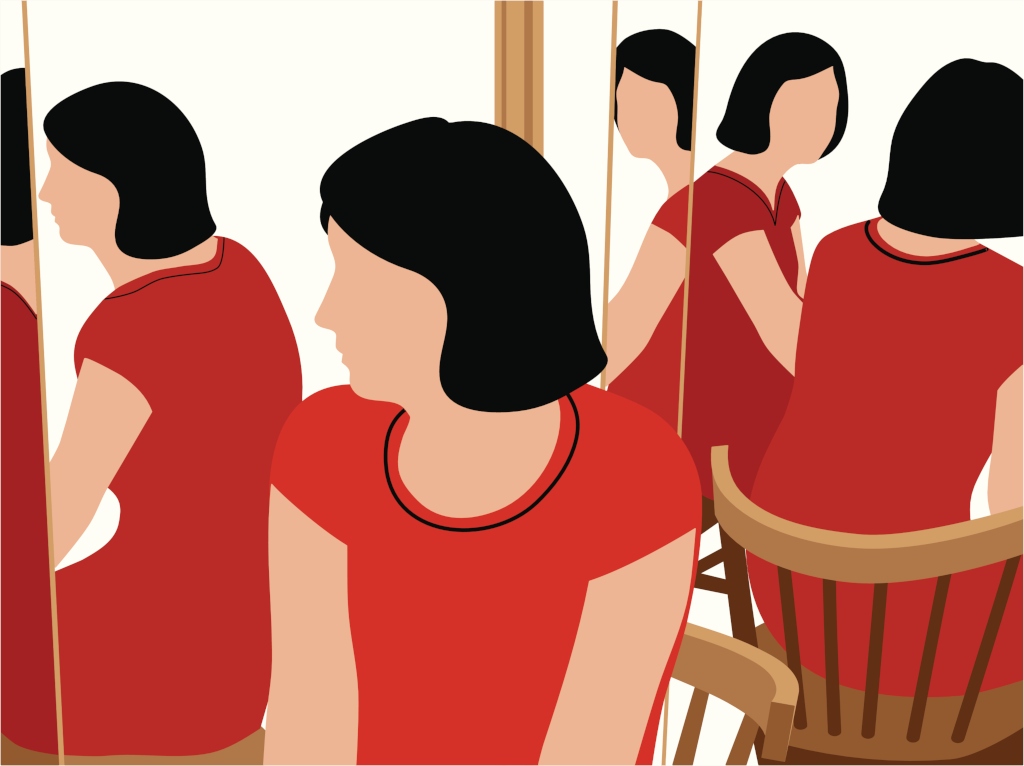According to a new study at McGill University, psychologists have determined that instances of celebrity fat-shaming are “associated with an increase in women’s implicit negative weight-related attitudes.”

In essence, seeing female celebrities shamed for their weight in popular media reinforces a long-held belief that “thin” is good and “fat” is bad.
Researchers compared 20 instances of celebrity fat-shaming with women’s implicit attitudes about weight before and afterwards.
READ MORE: How to respond to body-shaming relatives
To do that, researchers obtained data from Project Implicit’s online Weight Implicit Association Test between the years of 2004 and 2015.
The team selected 20 celebrity fat-shaming events widely reported by popular media, and then analyzed the implicit anti-fat attitudes reported by women two weeks before and two weeks after each event.
WATCH BELOW: Diet not working? Brain may be to blame

Such instances include Tyra Banks being shamed for her body while wearing a bathing suit on vacation in 2007, and Kourtney Kardashian being fat-shamed by husband Scott Disick for not losing her pregnancy weight quickly enough in 2014.
According to researchers, the fat-shaming events led to a spike in women’s implicit anti-fat attitudes.
The study also found a rise in negative implicit weight bias in women more generally, year over year.
Jennifer Bartz, one of the authors of the study, said they analyzed implicit bias because it can influence behaviour in a way unbeknownst to us.
“The thing about explicit attitudes… is that they’re vulnerable to self-censorship; they’re vulnerable to defensive processes,” said Bartz. “If we want to present ourselves in a particular light, we can kind of modulate those attitudes.”
WATCH BELOW: Intermittent fasting rising in popularity as weight loss plan
_JAN_2_848x480_1418092099753.jpg?w=1040&quality=70&strip=all)
So even if it seems like there’s a push for body positivity in popular media, it’s more likely that those ideals only exist on an explicit level, while implicit negative biases about weight remain.
According to Amanda Ravary, lead author of the study, social media may be helping to inflame this discrepancy.
READ MORE: Mom’s bikini selfie with daughter goes viral for all the right reasons
- Your holiday shopping may face a ‘triple threat’ if Canada Post strikes
- Canada approves Moderna’s RSV vaccine, first of its kind for older adults
- ‘More than just a fad’: Federal petition seeks tax relief for those with celiac disease
- ‘Huge surge’ in U.S. abortion pill demand after Trump’s election win
For Christine Logel, a social psychologist and professor at Renison University College, cases of celebrity fat-shaming are unique because celebrities often have bodies that are emblematic of the social ideal.

Get breaking National news
“We’re already bombarded by messages indicating that there’s a very narrow range of body types that will be embraced and accepted,” said Logel.
WATCH BELOW: ‘It was a trifecta of hate’: Body image activist recalls moment she was accosted for her weight, race

It’s still considered socially acceptable to comment on someone’s weight because it’s assumed to be within that person’s control — but that’s not the case.
Logel also believes the prevalence of social media is partly responsible for exacerbating the impacts of fat-shaming on individual body image.
“On social media, you can see that hundreds or thousands of people have weighed in… this can really feel like it’s widespread,” said Logel.
“That means that, no matter what we do, we’re going to be criticized. One way or another, we’re going to face that kind of shaming.”
READ MORE: Here’s why fat-shaming only makes things worse, according to scientists
Catherine Sabiston, a professor at the University of Toronto, agrees — social media can make it much more difficult to maintain a positive attitude towards one’s own body.
There are differences between what the captions say and what the images show, and this can produce mixed messages about body ideals, according to Sabiston.
WATCH BELOW: Lectin-free diet: What is the ‘controversial’ program that led to Kelly Clarkson’s weight loss

Social media “perpetuates this idealized body that individuals want to achieve,” said Sabiston.
“We obviously will never be able to reduce the imagery and what is presented… in social media, but we can limit the way that we interact with it,” Sabiston said.
Here are some ways to cultivate a positive attitude about weight and body image.
Avoid ‘upward social comparison’
It’s an individual’s responsibility to avoid comparing themselves to others on social media.
“As you’re looking at imagery, it’s about being positive about yourself and telling yourself… ‘this isn’t real,’ or ‘that’s great, but it’s not me,'” said Sabiston.
READ MORE: ‘Insatiable’ on Netflix: More than 100K sign petition to cancel ‘fat-shaming’ series
“It’s about being aware of one’s surroundings and celebrating other people’s successes, but knowing it’s not for everyone.”
In Sabiston’s view, the less you engage in upward social comparison, the less harmful social media will be.
Practice self-compassion
This could manifest in many different ways: talking about yourself using positive language, giving yourself a hug or creating time in your day when you can practice mindfulness.
WATCH BELOW: How dieting can potentially lead to eating disorders

It’s also about realizing a common humanity, Sabiston told Global News.
“You’re not so different from everybody else. For every emotion you feel, many others feel the same way,” said Sabiston. This understanding which can ultimately contribute to a more positive body image.
Focus on performance, not appearance
For Sabiston, it’s crucial that individuals struggling with body image focus on what their body can do — instead of how it looks.
“We need to remove the emphasis of appearance on every level. The emphasis… on the way we feel about ourselves and the way we engage with social media… cannot be about appearance,” said Sabiston.
“It has to be about things that are in our control… and that’s the real challenge. We tend to put the emphasis on appearance rather than function. It’s about how the body functions and what you can contribute without this emphasis on appearance.”








Comments